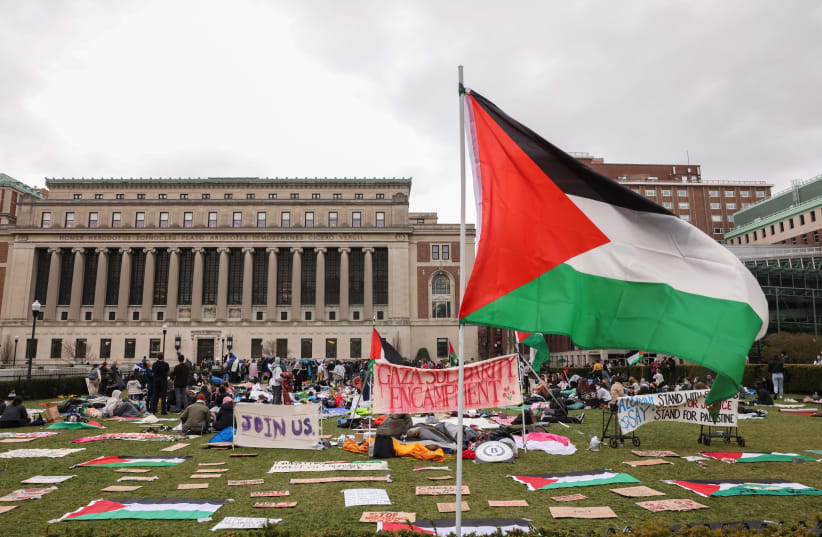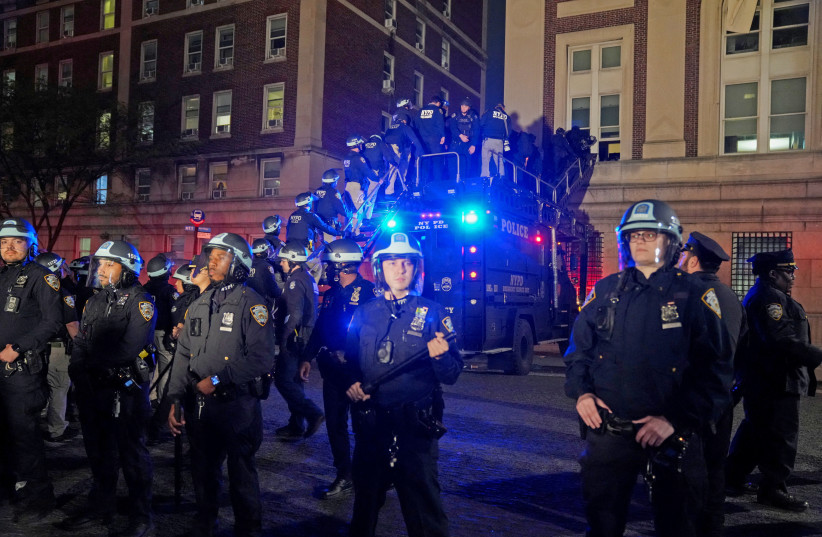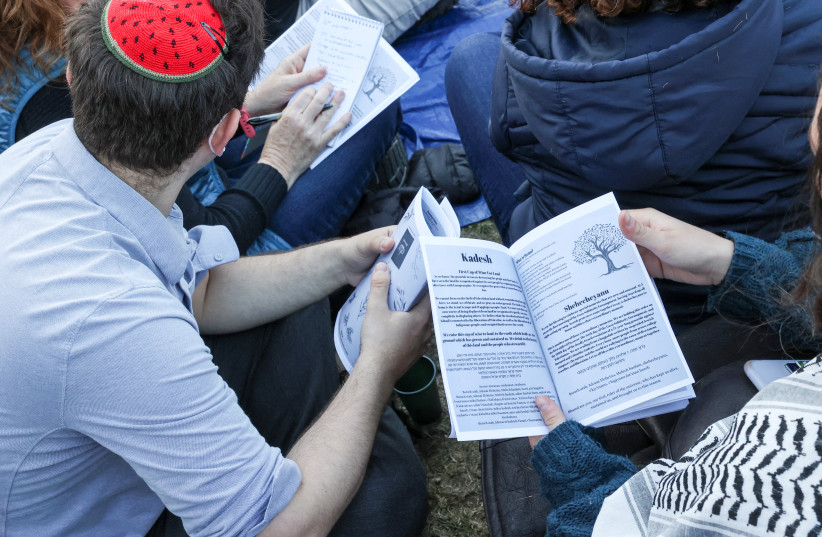It was one of the most embarrassing moments of my life.
During my senior year of college, the university attempted to fire the sitting president. One of my close friends organized a defensive effort and called on everyone he thought could help. I followed the crowd.
The library sit-in was our big protest. I agreed to do an interview with a local news station, having no idea what I’d gotten myself into.
“What are your demands?” the newscaster asked me.
I told him we thought it was unfair to fire the president.
“But when you don’t do your job well, you get fired,” he shot back.
My time as a protestor
Maybe it was the fear of being on camera for the first time, or maybe it was because I was oblivious to our official position, either way I was stumped.
After a long pause, I said, “Well, we think he’s doing a fine job.”
One such video surfaced from the anti-Israel protests at Columbia University. During the Hamilton Hall occupation press conference, Johannah King-Slutzky, one of the student organizers, was asked what the group’s demands were.
She requested food and water for the student body or they might “die of starvation.”
An interviewer inquired, “Why does the university have to provide food and water to trespassers?”
She attempted an answer, but it was clear she was oblivious to how ridiculous her words seemed.
Of course, the Columbia video went viral and has been the topic of many political talk shows. It’s been used to reflect the disposition of the student body on Ivy League campuses.
Still, the question remains: Who are these anti-Israel protesters?
To take the video of King-Slutzky at face value, you could easily think that all those opposing the Israel-Gaza war are highly entitled rich kids who’ve lived their whole lives in a bubble. There’s no doubt that a portion of them fit that description. But there are at least two other groups present in the population.
Many protesters are professional agitators funded by outside sources. The New York Post reported that “nearly half of the protesters arrested at Columbia University and City College campuses during violent anti-Israel demonstrations weren’t students,” and “Mayor Eric Adams warned that outside agitators were radicalizing youngsters.” It’s hard to know what these people stand for beyond chaos.
There’s another segment of students protesting around the world who are much like I was – uneducated and disorganized. They may be participating because a friend asked them to. They don’t really know what they’re fighting for. They’ve been convinced that Israel is wrong and Hamas and its followers are freedom fighters. These students run the gamut; they’re black and white and even Jewish, and we must convince them that they’ve been misled.
THERE’S A point in the Hebrew language that illustrates this problem.
The words “emet” (truth) and “sheker” (falsehood) are composed of specific Hebrew letters. “Emet” is spelled alef, mem, and tav, which are the first, middle, and last letters of the Hebrew alphabet. “Sheker” is spelled shin, kuf, resh, which are adjacent to each other at the end of the alphabet.
This teaches that a true notion gives the full picture, spanning all of the facts, whereas falsehoods zero in on one specific point, with a lack of context.
The students siding with Hamas are being sold a bad bill of goods. They’re being told facts with a lack of context, both in regards to the present situation and in terms of history, whether it’s the media force-feeding the lie of a genocide that doesn’t exist, or hyperfocusing on the casualties of war, or ignoring who initiated this conflict and all of our previous wars. The only way to view Israel as the aggressor in the present situation is to put on huge blinders.
I implore the protesters, especially the Jewish ones, to do their research and look at the whole picture when it comes to this issue. It’s vital not only because Israel needs support, but because the fight you’re waging is not just for a university president’s job. Your activism means life or death for both Israelis and Palestinians alike.
It may be hard to believe, but terrorist organizations like Hamas and the Islamic Revolutionary Guard Corps are ruining the lives of good people on both sides of the conflict. They’re the ones who need to be stopped – and that is Israel’s goal.
The writer is a rabbi, a wedding officiant, and a mohel who performs britot (ritual circumcisions) and conversions in Israel and worldwide. Based in Efrat, he is the founder of Magen HaBrit, an organization protecting the practice of brit milah and the children who undergo it.


